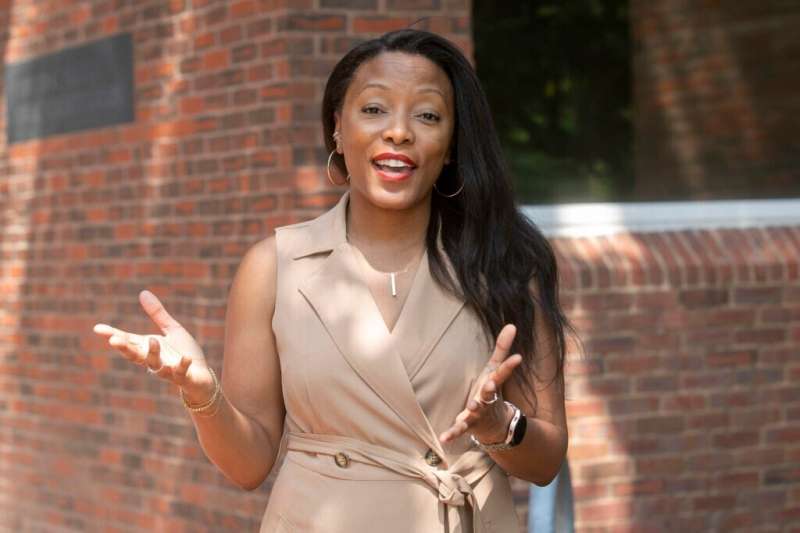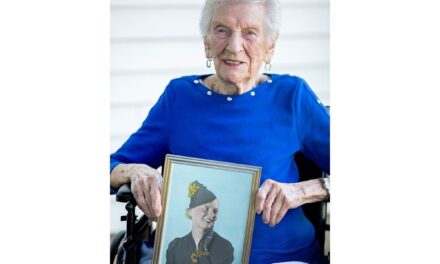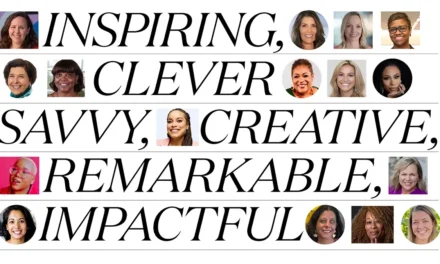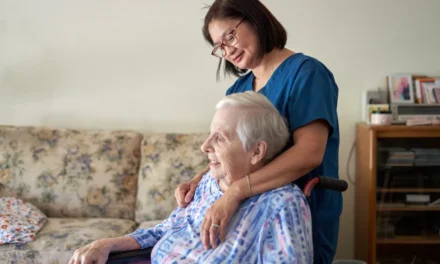
Even pillow talk apparently has its boundaries. New research suggests that when it comes to race, the duration of a relationship affects how comfortable Black women are with having these conversations with white male partners.
“There’s often this idea that when two people of different races come together, that they’re running through a sea of post-racial daisies. Love conquers all. But the reality is that—and this is not to discount that they love each other, and parts of that love does involve walking through daisies—they’re still dealing with a racially stratified society,” explained Marya Mtshali, a lecturer on Studies of Women, Gender, and Sexuality, a postdoctoral research fellow at Harvard Kennedy School’s Shorenstein Center, and author of the study.
Mtshali reported in a recent article in Sociological Forum that nearly all Black women spoke to their partners about these issues, but those in relationships of shorter duration felt there were limits to what they could say. A total of 21 Black women were interviewed as part of the research. Eleven of them referenced educating white partners on race, racism, or racial culture, and six of that group found themselves struggling with their partner’s racism and sexism.
“While it could be easy for them to respond to their partner by deciding he will never understand, they confront their partners’ prejudices and continue to have these conversations repeatedly,” Mtshali wrote.
For the study Mtshali also interviewed 15 white men between October 2011 and February 2012 and from July 2014 to January 2016. She focused on Black female/white male couples. Mtshali was involved in an interracial relationship at the time and said that influenced her work, especially given how few studies had been done on relationships between Black women and white men.
One Black female subject shared that she found it difficult to speak to her white male fiancé about issues of discrimination against Black men, in particular. The subject felt she couldn’t tell her fiancé that her two Black brothers have had harder lives, have been held back in their careers, and denied opportunities because of their race.
“In contrast to her fiancé, she felt like he had gotten further ahead than the average Black man could … but she said she couldn’t tell him that,” Mtshali said. “The subtext there is that telling him would be emasculating to him. She’s also dealing with the fact that as a Black woman, she’s also operating against this larger stereotype in society of the emasculating Black woman.”
In one example, Mtshali spoke with Amber, a 57-year-old Black woman married to 58-year-old white man named Ryan. Amber felt she needed to repeatedly explain racism to her husband, who only agreed with her when he saw it for himself. “I get frustrated because he thinks I’m just whining and complaining for no reason, and it’s like, ‘No, these are legitimate feelings,'” she told Mtshali.
For his part, Amber’s husband said he did not want to discount what she’s gone through professionally but still expressed doubts that his race and gender had helped him move ahead in his career. “I’m not discounting that being a white male has been advantageous, but I also think that … my strategy, so to speak, has also been advantageous, so that’s a point of discussion,” Ryan said.
As part of her research, Mtshali expanded on French sociologist Pierre Bourdieu’s concept of “habitus,” the idea that the ways in which you have been socialized affect your perceptions, actions, and feelings. While Bourdieu based his work on individual identities, Mtshali took an intersectional approach and developed the concept of “racial heterosexual habitus.”
The material for this article was gleaned from a larger set of interviews conducted by Mtshali that also included white female/Black male couples. This research showed that Black female/white male couples operated differently than white female/Black male couples. While interviewing these two different pairings, the sociologist discovered that Black men were less likely to talk to white female partners about racial issues because they felt their partners would not understand. She noted this difference was particularly notable among those of older generations.
“If we’re going to be talking about this and trying to figure out solutions for how we have these conversations, whether on a micro level with our friends, family, and in the workplace, or on a macro level as a country, we need to talk about the influence that intersectional identities will have,” Mtshali said.
Black women also raised concerns around sexism, she said, but they typically framed those in conjunction with the racism they experienced as Black women and not in terms of the wider #MeToo movement. “There’s a possibility that it did not come up in these conversations because of the ways in which the movement was co-opted by wealthy white female celebrities with often a focus on wealthy white male perpetrators, despite its original origins of focusing on the needs of low-income Black women,” she said.
The interviews revealed that many of the men were shocked to find that they suddenly had to deal with racism against their partners. The Black Lives Matter movement influenced some of the couples, with conversations highlighting opposing beliefs regarding police brutality against Black people, as well as the need to understand and learn about new perspectives. “It’s really important that partners take into account that there are some unique issues they may deal with,” Mtshali said.
“We live in a multicultural, interracial society,” Mtshali said. “Everybody should try to learn and go to reputable sources to learn about these things. Don’t rely on people who are in marginalized positions to be the educators. That’s not a fair thing to do.”
A second article from the larger study is under review at a peer-reviewed journal, and Mtshali hopes that it “will nuance our understandings of the concept of habitus to make it more reflective of people’s lived realities, and, therefore, a more useful tool in understanding how people are influenced by and navigate systems of power such as racism and sexism.”
More information:
Marya Thembi Mtshali, “Racial Heterosexual Habitus” and Management of Racial Education Discussions Within Black Female/White Male Romantic Relationships1, Sociological Forum (2023). DOI: 10.1111/socf.12887
Provided by
Harvard University
This story is published courtesy of the Harvard Gazette, Harvard University’s official newspaper. For additional university news, visit Harvard.edu.
Citation:
Study finds duration of relationship affects comfort level of Black women in discussing race with white male partners (2023, July 13)
retrieved 13 July 2023
from https://phys.org/news/2023-07-duration-relationship-affects-comfort-black.html
This document is subject to copyright. Apart from any fair dealing for the purpose of private study or research, no
part may be reproduced without the written permission. The content is provided for information purposes only.




